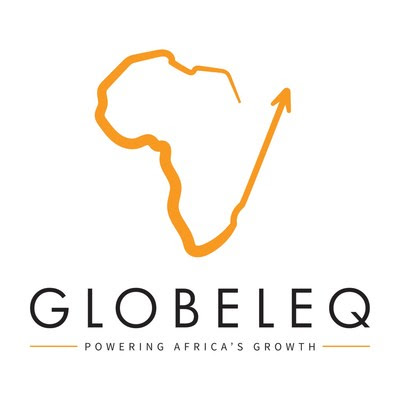MAPUTO, Mozambique, 14 juin 2021 /PRNewswire/ — Étape importante pour l’avenir énergétique propre, Globeleq, une compagnie d’électricité indépendante leader en Afrique, et ses partenaires de projet, Source Energia et Electricidade de Moçambique (EDM) ont célébré le début de la construction de la centrale solaire photovoltaïque de 19 MWp (15 MWac) de Cuamba et d’un système de stockage d’énergie de 2 MW (7 MWh).

Le ministre des ressources minérales et de l’énergie, le Dr. Ernesto Max Tonela, était l’invité officiel sur le site de la centrale électrique à Cuamba où s’est déroulée la cérémonie. Le projet contribuera à la stratégie « Énergie pour tous » du gouvernement, qui vise à assurer l’accès universel à l’énergie d’ici 2030.
Le projet, s’élevant à un montant de 32 millions de dollars, est situé dans le district de Tetereane de la ville de Cuamba, dans la province de Niassa, à environ 550 km à l’ouest de la ville côtière de Nacala. Le projet est le premier IPP (producteur d’électricité indépendant) au Mozambique à intégrer un système de stockage d’énergie à l’échelle du service public et comprend une mise à niveau de la sous-station existante de Cuamba. L’électricité sera vendue dans le cadre d’un contrat d’achat d’électricité de 25 ans avec EDM.
Le projet devrait bénéficier d’un financement par emprunt de 19 millions de dollars de la part du Fonds d’Infrastructure pour l’Afrique Émergente (« EAIF »), membre du Groupe Privé de Développement des Infrastructures (« PIDG »). En outre, le projet bénéficiera d’une subvention de 7 millions de dollars de la part du mécanisme de financement des déficits de viabilité (« VGF ») de PIDG et d’une subvention de 1 million de dollars de CDC Plus afin de permettre un tarif abordable et le système de stockage d’énergie.
Jonathan Hoffman, directeur du développement de Globeleq, a commenté : « Ce projet est précurseur en matière de stockage d’énergie à l’échelle industrielle au Mozambique et dans la région. Cuamba Solar, ainsi que tous les projets énergétiques sur lesquels nous travaillons, sont des preuves de notre engagement permanent à contribuer à la sécurité énergétique à long terme et au développement du pays sur une voie à faible émission de carbone. »
Globeleq et Source Energia développent également l’un des premiers projets éoliens au Mozambique, situé près de la ville de Namaacha, à 40 km à l’ouest de Maputo. En outre, Globeleq s’est récemment préqualifié pour être en charge du projet d’énergie solaire de 40 MWp de Dondo dans la province de Sofala et a été sélectionné pour deux projets solaires de 15 MWp dans l’Eswatini voisin.
Pedro Coutinho, partenaire fondateur et directeur général de Source Energia, a ajouté : « Source se réjouit d’avoir franchi cette étape importante au Mozambique et dans la province de Niassa avec le projet photovoltaïque et de stockage d’énergie de Cuamba. Nous nous engageons à travailler en restant orientés vers le développement de projets conformes aux objectifs énergétiques du Mozambique en matière d’accès universel, sous la direction d’EDM. »
Marcelino Gil, le président d’EDM a expliqué l’engagement d’EDM en faveur du mix énergétique du pays, fondé sur l’abondance des ressources du Mozambique, avec la volonté de promouvoir les énergies propres et renouvelables en vue de l’accès universel à l’énergie pour tous les Mozambicains d’ici 2030.
Selon les prévisions, le projet nécessitera environ 100 travailleurs pendant la construction, dont un grand nombre proviendront de la collectivité locale. La société espagnole TSK a été désignée comme entrepreneur EPC (Ingénierie, Approvisionnement et Construction) du projet. Globeleq, avec le soutien de Source Energia, supervisera la construction et l’exploitation de la centrale électrique.
À propos de Globeleq
Globeleq est un leader en matière de développement, promotion et gestion de production d’électricité en Afrique. La société dispose d’une capacité de production d’électricité de plus de 1400 MW dans le cadre de 28 projets au Cameroun, en Côte d’Ivoire, au Kenya, au Nigeria, en Afrique du Sud et en Tanzanie. Avec 305 MW supplémentaires en cours de construction au Kenya (52 MWp solaire) et en Côte d’Ivoire (253 MW), et 2000 MW de projets en cours de développement, Globeleq a un engagement à long terme dans le secteur de l’électricité en Afrique. www.globeleq.com
À propos de Source Energia :
Source Capital est une société indépendante de capital-investissement fondée en 2015, qui recherche des actifs investissables dans l’immobilier, l’énergie et le capital-investissement en général à travers l’Afrique lusophone, principalement au Mozambique et en Angola. L’énergie est un secteur stratégique et Source Energia a été créée en tant que plateforme diversifiée d’énergie renouvelable axée sur le développement, la gestion, l’exploitation et la maintenance de projets à grande et petite échelle en réseau et hors réseau. www.source.capital
À propos d’EDM
Electricidade de Moçambique E.P. (EDM) est la compagnie d’électricité appartenant à l’état créée en 1977, deux ans après l’indépendance du Mozambique. EDM est l’acheteur central d’électricité, l’opérateur du système, le gestionnaire du réseau de transport et de notation et l’exploitant de l’infrastructure de distribution de l’énergie au Mozambique. EDM produit, transporte, distribue et vend de l’électricité au Mozambique. www.edm.co.mz
Logo – https://mma.prnewswire.com/
